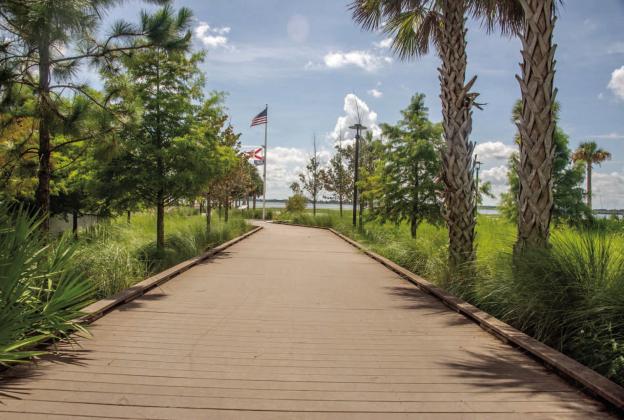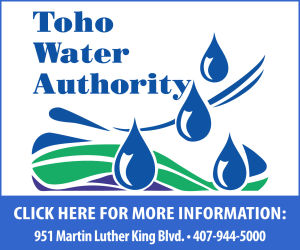It’s that time of year again where daily storms and potential tropical storms bring heavy rain. Roads, sidewalks, parking lots, roofs and other hard surfaces make it difficult for the ground to soak up all the rainwater. Instead, water runs off the pavement picking up pollutants along the way. The polluted water runs into the nearest stormwater pond or lake, where it can seriously harm the environment.
One negative impact of polluted stormwater runoff is algae blooms. While algae blooms are a natural occurrence, water polluted with fertilizer or lawn waste can worsen a bloom by “feeding” it. The algae block sunlight, oxygen levels drop, and plants and aquatic animals can die. Without healthy waterbodies, major industries such as boating, fishing, and tourism can suffer. To minimize these impacts, communities need proper stormwater management. Low impact development (LID) is a stormwater management approach that can reduce flooding and pollution caused by runoff. Rain gardens, porous pavement, trees, and rain barrels are some examples.
In undeveloped land, the environment naturally holds, filters, and absorbs stormwater. Low impact development uses environmentally friendly stormwater systems to mimic nature. As central Florida rapidly develops, there is a great opportunity to use LID in our communities. At home, rain barrels and rain gardens can be used to collect rainwater and minimize runoff.
For more information contact UF/IFAS Extension Osceola County at 321697-3000.



